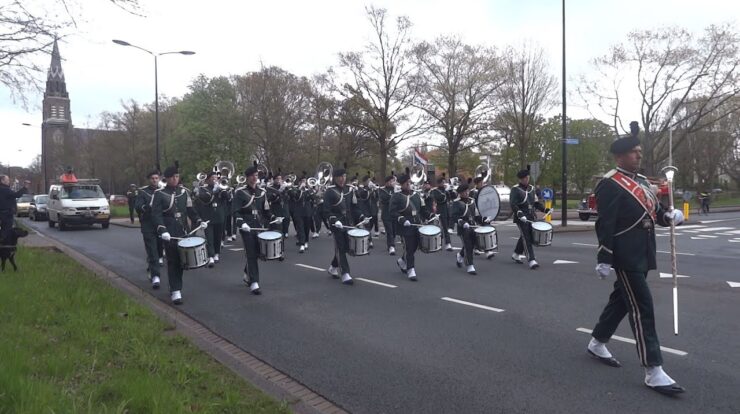
Kings Day, a vibrant and globally celebrated holiday, holds immense cultural significance, economic impact, and social implications. Rooted in historical traditions and diverse regional customs, this festive occasion offers a captivating blend of revelry, unity, and economic prosperity.
From its humble beginnings to its present-day grandeur, Kings Day has evolved into a multifaceted event that enriches communities and stimulates industries. Whether it’s the bustling markets of Amsterdam or the colorful parades of Curaçao, Kings Day brings people together in a spirit of joy and celebration.
Cultural Significance of Kings Day
Kings Day is a widely celebrated holiday in the Netherlands and other countries with Dutch heritage. It holds immense cultural significance, honoring the reigning monarch and commemorating the country’s history and traditions.
Historically, Kings Day originated as a celebration of Queen Wilhelmina’s birthday in 1885. Over time, it evolved into a national holiday known as Koningsdag, honoring the reigning monarch regardless of gender. The holiday is marked by a vibrant atmosphere, street parties, and the wearing of orange, the color of the Dutch royal family.
Symbolism and Traditions
Kings Day is a symbol of national unity and pride. The color orange represents the House of Orange-Nassau, the ruling royal family of the Netherlands. People dress in orange clothing, decorate their homes and streets with orange flags and ornaments, and participate in festive parades and markets.
One of the unique traditions associated with Kings Day is the vrijmarkt, or free market. During this time, people are allowed to sell their used belongings on the streets without paying taxes. This tradition fosters a sense of community and encourages recycling and reuse.
Celebrations in Different Regions, Kings day
Kings Day is celebrated with great enthusiasm in the Netherlands, particularly in Amsterdam. The city transforms into a sea of orange, with street parties, music, and cultural events taking place throughout the day.
In other countries with Dutch heritage, such as Aruba, Curaçao, and Suriname, Kings Day is also celebrated with similar traditions and festivities. However, each region may have its own unique customs and activities associated with the holiday.
Economic Impact of Kings Day
Kings Day has a significant economic impact on the Netherlands and other countries where it is celebrated. The holiday attracts a large number of tourists, both domestic and international, who contribute to the tourism industry.
Retail businesses also benefit from Kings Day, as people spend money on orange-themed merchandise, gifts, and souvenirs. Hotels, restaurants, and bars experience increased revenue due to the influx of visitors and participants.
Role in Promoting Local Businesses
Kings Day plays a crucial role in promoting local businesses, particularly small and medium-sized enterprises (SMEs). The vrijmarkt provides an opportunity for entrepreneurs to sell their products and services directly to consumers.
Furthermore, the holiday encourages people to support local businesses by purchasing food, drinks, and souvenirs from neighborhood shops and restaurants.
Potential Benefits and Challenges
While Kings Day offers economic benefits, it can also present challenges for businesses. The influx of visitors and increased activity can lead to traffic congestion, noise pollution, and potential safety concerns.
Businesses need to plan adequately to accommodate the increased demand and ensure the safety and well-being of their customers and employees during the holiday.
Social and Community Aspects of Kings Day
Kings Day is not only an economic event but also has profound social and community aspects. The holiday fosters a sense of unity and belonging among the Dutch people.
Street parties and community gatherings create a convivial atmosphere, allowing people to interact, socialize, and celebrate together. The wearing of orange clothing further enhances the sense of community and shared identity.
Promoting Cultural Exchange and Diversity
Kings Day is also an opportunity for cultural exchange and diversity. The holiday attracts people from different backgrounds and cultures, creating a melting pot of traditions and customs.
In recent years, Kings Day has become more inclusive, with celebrations embracing people of all ages, ethnicities, and sexual orientations. The holiday promotes tolerance, acceptance, and a sense of shared humanity.
Safety and Security Considerations for Kings Day

While Kings Day is generally a safe and enjoyable event, it is essential to be aware of potential safety and security risks.
Large crowds and alcohol consumption can lead to increased incidents of theft, pickpocketing, and disorderly conduct. It is advisable to take precautions to protect personal belongings and stay alert in crowded areas.
Measures to Ensure Safety
Authorities take various measures to ensure the safety of participants and attendees during Kings Day. These include increased police presence, crowd control measures, and emergency response plans.
Participants are encouraged to report any suspicious activities or incidents to the authorities promptly.
Recommendations for Attendees
To stay safe and secure during Kings Day, attendees are advised to:
- Be aware of their surroundings and avoid isolated areas.
- Keep valuables secure and avoid carrying large amounts of cash.
- Stay hydrated and take breaks from alcohol consumption.
- Follow the instructions of authorities and security personnel.
- Report any suspicious behavior or incidents to the police.
Environmental Impact of Kings Day
Kings Day celebrations can have an environmental impact due to waste generation, energy consumption, and transportation.
The use of disposable cups, plates, and other materials during street parties can contribute to waste. Additionally, the influx of visitors and increased traffic can lead to air pollution and noise pollution.
Initiatives to Minimize Impact
Efforts are being made to minimize the environmental impact of Kings Day. Many municipalities have implemented recycling programs and encouraged the use of reusable materials.
Public transportation is promoted to reduce traffic congestion and emissions. Additionally, some cities have introduced electric buses and other sustainable transportation options for attendees.
Suggestions for Sustainable Celebrations
To make Kings Day celebrations more sustainable, attendees can:
- Bring reusable cups, plates, and utensils.
- Dispose of waste properly in designated bins.
- Use public transportation or walk to the event.
- Choose eco-friendly souvenirs and products.
Historical Timeline of Kings Day
| Date | Event |
|---|---|
| 1885 | Koninginnedag (Queen’s Day) first celebrated on Queen Wilhelmina’s birthday. |
| 1948 | Queen Juliana ascends to the throne, and the holiday is renamed Koninginnedag. |
| 1980 | Queen Beatrix ascends to the throne. |
| 2013 | King Willem-Alexander ascends to the throne, and the holiday is renamed Koningsdag (King’s Day). |
Global Variations of Kings Day
- Aruba:Known as Dia di Rey, celebrated with parades, music, and traditional Aruban dishes.
- Curaçao:Called Dia di Rei, features colorful parades, traditional games, and live music.
- Suriname:Observed as Koningsdag, with street parties, orange-themed decorations, and the singing of the national anthem.
- Bonaire:Celebrated as Dia di Rei, with a focus on traditional music, dance, and food.
- Sint Maarten:Known as Koningsdag, marked by street parties, parades, and local delicacies.
Kings Day in Literature and Media
Kings Day has been depicted in various literary works and media:
- Literature:Dutch author Simon Vestdijk wrote “De Vuuraanbidders” (1947), which explores the social and cultural significance of Koninginnedag.
- Film:The 2015 Dutch film “Kings Day” follows a group of friends who celebrate the holiday in Amsterdam.
- Music:The song “Koningsdag” by Dutch singer Guus Meeuwis has become a popular anthem for the holiday.
Final Summary
As Kings Day continues to captivate hearts and minds around the world, its enduring legacy lies in its ability to foster cultural exchange, promote local businesses, and create lasting memories. From its humble origins to its modern-day manifestations, Kings Day remains a testament to the power of tradition, community, and the human spirit.
Expert Answers
When is Kings Day celebrated?
Kings Day is celebrated annually on April 27th in the Netherlands and its constituent countries.
What is the significance of orange on Kings Day?
Orange is the national color of the Netherlands, and it is traditionally worn by participants during Kings Day celebrations.
What are some popular activities during Kings Day?
Kings Day is celebrated with a variety of activities, including street markets, parades, music festivals, and family gatherings.





